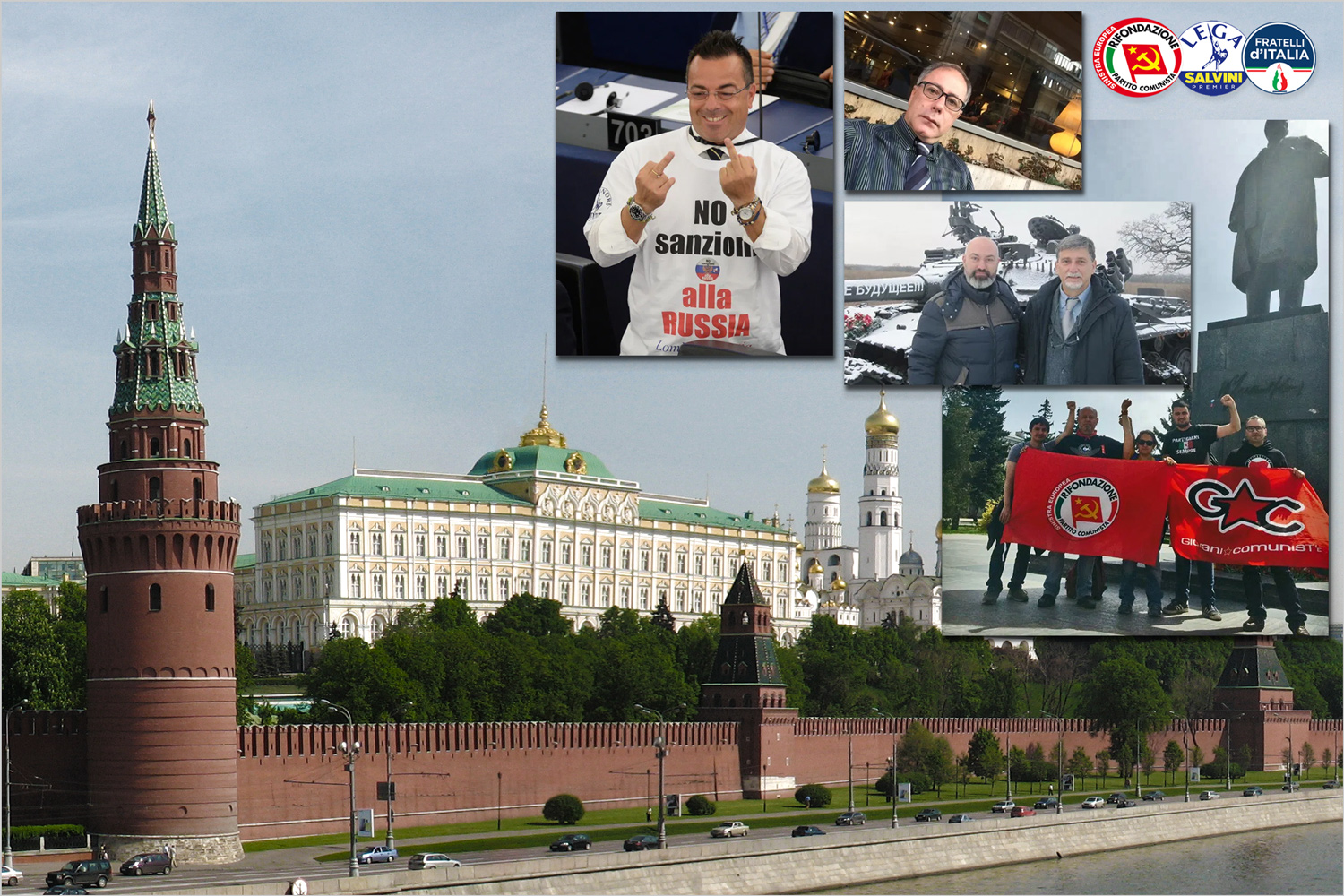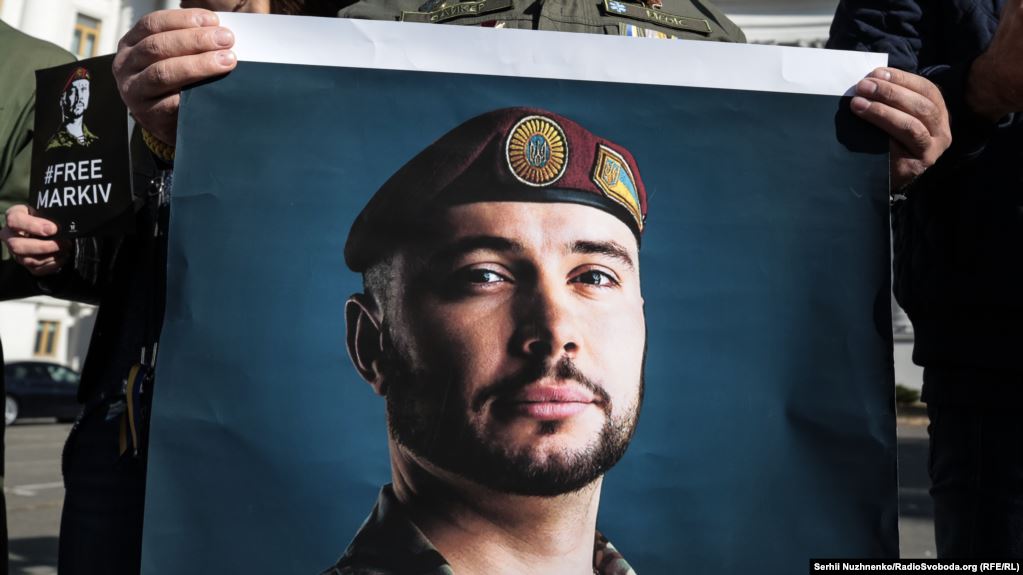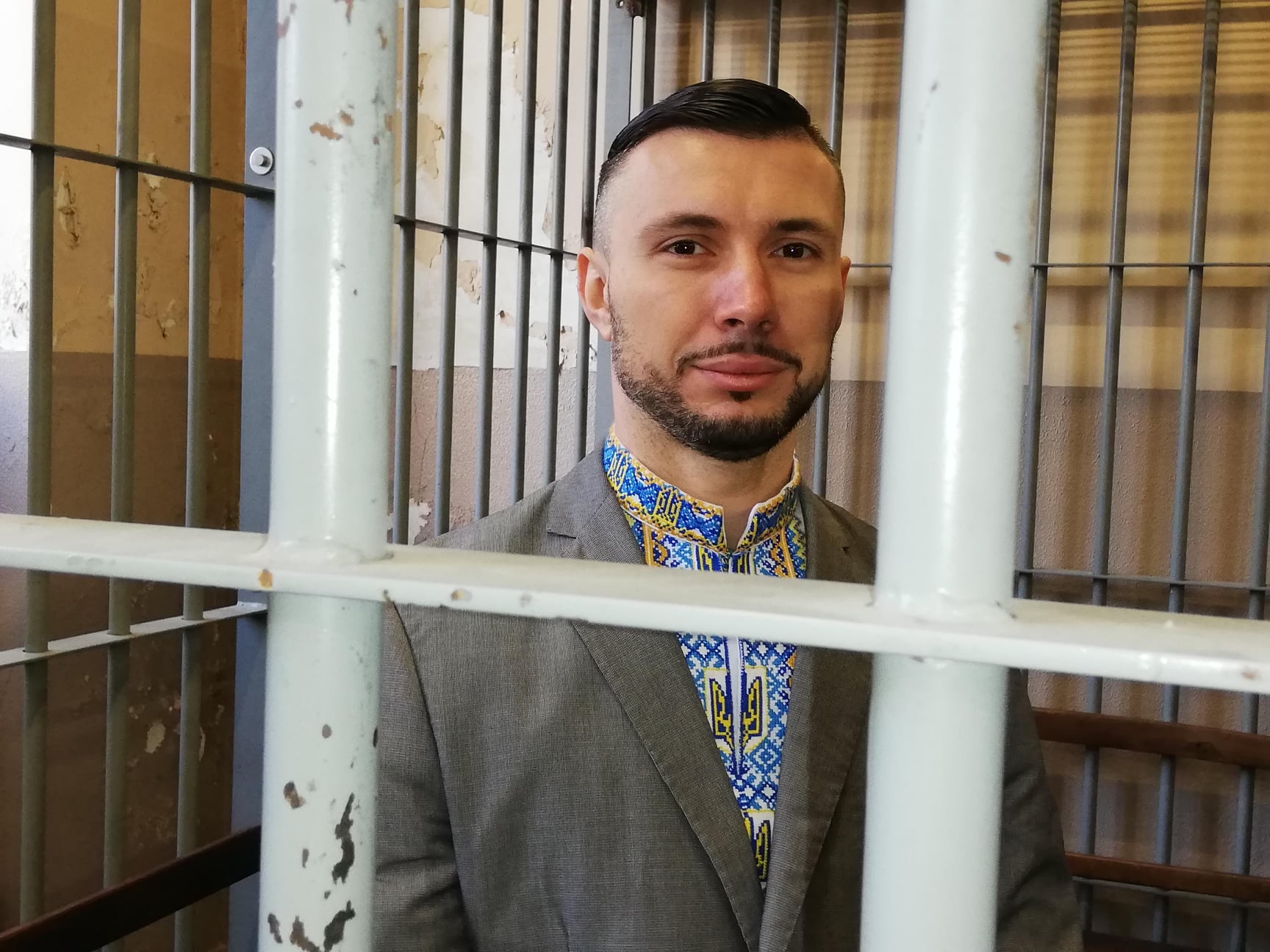Read part 1: The Kremlin’s lobby in Europe: Germany and the UK
"Voices"

Now, let’s go to Italy, a country especially important for Ukraine. The Ukrainian diaspora is numerous there, and it was in Italy, [where Russia’s influence contributed strongly to the formation of public opinion - Ed] that Vitaliy Markiv was convicted.
Meet Sarah Reginella, from Ancona, a psychologist. In 2015 she went to the occupied Donbas. [...] The purpose of the voyage was to “make documentaries on human behavior during armed conflict” And Sarah really made 4 films: “I am Italian,” “Voices,” “Times of Donbas,” and “The Beginning of the War. Psychology of conflict.”
Here is how the authors describe the film “Voices”:
“a small film about life in the Donbas during the Civil War. The film was shot by Europeans and for Europeans. Sarah Reginella tried to break the information blockade and show the EU residents the real picture of what is happening in Donbas.”
In December 2015, the Italian visited the regional executive committee of United Russia in Ufa, where she met with Duma deputy Anvar Mahmutov and Member of Parliament of the Republic of Bashkortostan Konstantin Kanunikov, with whom he discussed the political situation in Ukraine and Syria.
Then Reginella stated that she intends to make films about Donbas, which will cover the real situation and show that it’s exclusively an internal conflict in eastern Ukraine.
Sarah also often visited the occupied part of Ukraine, met with representatives of the Russian clergy, the occupying authorities and ordinary militants of the occupiers. At the same time, she supported Russian propaganda [narratives] that the West and the United States had created a conflict in the East.
Already in May 2016, the Ambassador of Ukraine in Tallinn Viktor Kryzhanivsky appealed to the Estonian authorities to prevent the screening of the film “Times of Donbas” by Italian director Sara Reginella in Estonia, because this film is part of the ideological hybrid war of the Russian Federation and is designed to refute Russia’s military aggression against Ukraine. However, without success, the film was shown in Estonia, as well as in other European countries. And this is probably not the last creative work of Reginella on the spread of Russian propaganda in Europe.
Politicians

Unfortunately, provocations by some Italian politicians have been recorded by the Ukrainian Foreign Ministry since the beginning of the Russian armed aggression against Ukraine.
“On September 17, 2014, Italian MEP Gianluca Buonanno (of Lega Nord party - Ed.) appeared in a parliamentary hearing on the ratification of the Association Agreement between Ukraine and the EU, appeared in a provocative T-shirt with the words 'No to sanctions against Russia.' The protest was initiated by a group of Italian deputies, the Lombardy-Russia Cultural Association,” said Valentyna Bykova, a media expert and analyst at the International Center for Countering Russian Propaganda.
In turn, on May 4, 2015, on the instructions of Dante Cattaneo – the mayor of the Italian town of Ceriana Lagetto – a scandalous monument to the "Martyrs of Odesa," [i.e. the tragic fire in the Trade Union building of the southeastern Ukrainian city of Odesa on 2 May 2014 in which 48 pro-Russian activists perished; although the fire was most likely an accident and there is ample evidence of pro-Ukrainian activists rescuing people trapped in the building, Russian propaganda spins the incident as if the pro-Russian activists supporting a Russian military intervention in Ukraine were 'massacred' by activists resisting such a takeover - Ed] was erected. Cattaneo is a member of the League of the North party.
This continues to this day. The most recent example is that on January 26, 2020, L’Eredità narrator Flavio Insinna quoted one of the Kremlin propaganda messages live on RAI-1, “Little Russia [aka Malorossiya] is the second name of Ukraine.“
- Read more: “Malorossiya”: yet another Russian imperial myth salvaged from the garbage dump of history
Although the Embassy of Ukraine in Italy promptly responded to the situation and addressed an official letter to the channel’s management regarding the incorrect and even insulting statement of the narrator, it did not receive any response, after which it decided to publish the letter on the official website of the Embassy. For three days, Flavio Insinna publicly acknowledged the incorrectness of his statement and remarked that it was an unintentional mistake.
Italians who want their “LNR”
For example, Eliseo Bertolasi is a candidate of anthropological sciences, a geopolitics analyst at the Institute of Higher Geopolitical Studies and Related Sciences, a member of the Italy-Russia Association (Bergamo section), a member of the Lombardy-Russia Association, and a Russian media reporter for Sputnik news in Italy. He visited ORDLO [the Ukrainian official name for occupied areas of Luhansk and Donetsk provinces - Ed] participated as an “international observer” in the illegal elections in the “DNR” in November 2018.
And during his visits to the temporarily occupied territories of Donbas, he actively gave interviews to ORDLO media, broadcasting Kremlin propaganda messages. In February 2018, he visited the annexed Crimea, where he participated in the Yalta Agrarian Forum as the founder of Agroconvention LLC. Eliseo insists that Italy suffers from sanctions imposed on Russia, and therefore must resume trade cooperation with Russia in full.

The next Gualtiero Mazzi is a lawyer, vice president of the Province of Verona, leader of the League of the North. In November 2015, he came to ORDLO to “help rebuild the infrastructure and buildings destroyed during the war, as well as to study how the independence vote was conducted.”
Another supporter of the Russian Federation, Vito Comencini, is an adviser to the Verona City Hall and a member of the board of the Veneto Regional Committee for Independence.
He was also in ORDLO and twice in the occupied Crimea. In addition, he spoke positively about the construction of the “Crimean Bridge” and the federal highway “Tavrida” [infrastructure objects with which Russia secures its grip over occupied Crimea - Ed].

And here goes Palmarino Zocatelli – President of the “Veneto Regional Committee for Independence,” National Secretary of the “Free Trade Union.” He illegally visited the occupied territories of ORDLO and the occupied Crimea three times. Incidentally, Zocatelli in 2013 was an active participant in the preparation of a referendum on the independence of the Veneto region.
Edoardo Rubini is the deputy president of the Veneto Regional Committee for Independence. In November 2015, he was in the temporarily occupied territories of the Donetsk oblast to “assess the circumstances in the region.”
Gianmatteo Ferrari is a member of the League of the North party and vice-president of the Lombardy-Russia Association. He came to ORDLO for the purpose of “mutually beneficial partnership between the citizens of the DNR and the Italian business community.”
In an interview with Russia’s RT, he said that “everyone who wants to help the people of Donbas who suffered as a result of the fratricidal war” had the opportunity to join the delegation. He also added: “We hope to establish a dialogue between Europe and the DNR. This is possible if Italians and Europeans, in general, find out what is happening in Donbas.”
Luca Bertoni – Secretary of the Association “Lombardy-Russia," one of the leaders of the party “League of Lombardy” (part of the party “League of the North”). In 2016 and 2017 he visited ORDLO. He was an honorary guest of the photo exhibition “101 life” dedicated to the “DNR,” which took place in February 2017 in Verona.
The purpose of the exhibition [parrots Russian propaganda narratives]: to stop the civil war in Donbas, to tell the world the truth, and to collect signatures for a petition to the UN Human Rights Council. The description of this exhibition was broadcast by Kremlin messages, in particular, about “the attack of armed nationalists on Kyiv-Crimea buses in February 2014.” It [creates the impression] as if the evil [Ukrainian] "banderites" burned vehicles along with things and documents, and beat and tortured people for refusing stand to kneels and sing the Ukrainian national anthem and shout “Glory to the Heroes.”
The organizer of this exhibition was Eliseo Bertolasi, already familiar to us from his visits to the temporarily occupied territories mentioned above.
Lucio Chiavegato is the founder and leader of the radical separatist Veneto Independence Movement and president of the “Liberi imprenditori federalisti europei” small business union. He actively cooperates with the League of the North and also visited ORDLO.
Paola Pasetto is a member of the radical separatist Veneto Independence Movement and director of a furniture firm. She repeatedly ran in the local elections in the province of Veneto from the League of the North-League of Veneto. In November 2016, she visited the temporarily occupied territories of the Donetsk region.
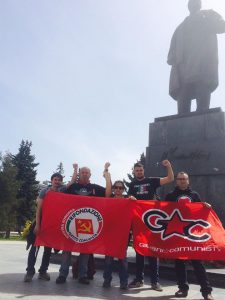
Loris Ferro is a member of the radical separatist Veneto Independence Movement, director of several companies (consulting, electronics, alarm systems). In November 2016, he was in ORDLO.
In addition, the League of the North is in favor of granting independence to the northern provinces of Italy (Piedmont, Veneto, and Lombardy) with the formation of a separate state with its capital in Milan. [...]
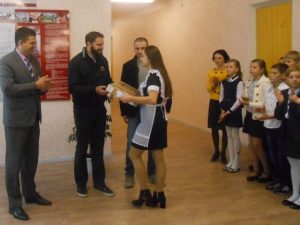
Therefore, visitors from the Italian Republic visited the temporarily occupied territories of ORDLO and the Autonomous Republic of Crimea in order to demonstrate support for the self-proclaimed “republics,” as they themselves are supporters of the formation of a similar republic “LNR / DNR” in Italy. It is also possible that in this way there is an exchange of experience.
As a result, these visits are regularly used by the Russian secret services as an information pretext to create a negative image of Ukraine not only within Russia, Italy, Crimea, and the self-proclaimed "DNR" and “LNR” but also in the international arena.
Read more:
- The Kremlin’s lobby in Europe: Germany and the UK
- Facts and questions in Italy's dubious trial of Ukrainian soldier
- Russian puppet "LNR" opens "consulate" in Sicily (2018)
- Far right and left, conspiracy theorists among “foreign monitors” at Russia’s sham Donbas elections: Report
- EU Council sanctions nine persons for sham “LDNR elections”: who they are
- Phony “elections” in Russia’s phony “republics” in Ukraine: a legitimization of the occupation
- Pro-Kremlin media attempts to make fascism politically correct
- French politicians to visit Donbas to “support Russian army being bombarded by Ukraine”
- The Kremlin’s chaos strategy in Ukraine and its helpers

